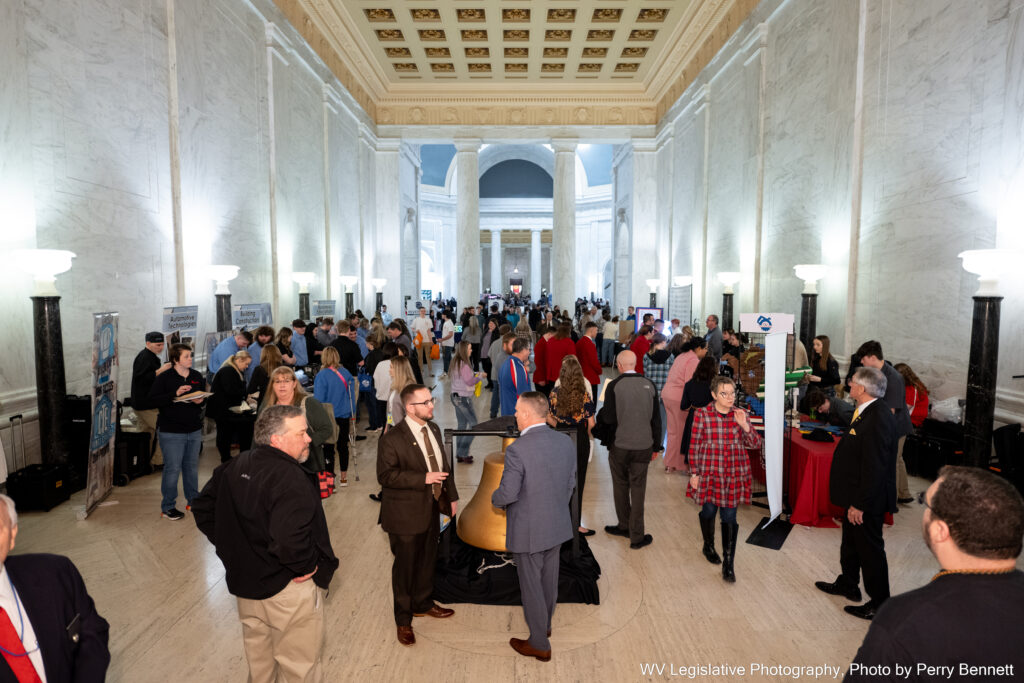Students from across the Mountain State showcased skills learned during career and technical training (CTE) at the Capitol on Friday.
From a 3D-printed cat figurine to freshly made pastries, students put on a show for legislators.
Aaron Fedorke, an instructor in engineering and machine tool technology at Wheeling Park High School, expressed his pride in his students’ diligence.
“Just watching them get that creative thinking and putting into real-world scenarios and things like that,” Fedora said. “[I’m] so proud of our state and our CTE programs in the state.”
According to Fedorke, CTE programs equip students not only with job-specific expertise but also with essential life skills crucial for employment.
“So we’re trying to operate it more like a trade would, or a company would, and as far as like, being to work on time, you know, even drug testing, things like that. Prepping them, getting them ready right out of high school to go straight into these awesome trades or jobs that are really available,” Fedorke said. “And employees that are employers are really needing good employees coming right out of high school.”
Ray Maynard, a junior at Mingo Central High School, spent the morning divvying out cheesecake bites as part of her culinary program. With aspirations of becoming a chef post-graduation, Maynard underscored the program’s role in honing practical skills.
“It gets me prepared more for the physical state like doing it and learning hair restraints and what you do with your body, you have to stay clean,” Maynard said. “And it helps a whole lot with just being prepared for when it actually happens when you go out to work at a restaurant.”
Don Shepherd, the technology integration specialist at Roane-Jackson Technical Center, emphasized the range of offerings in CTE programs.
“We have with us today, everything from cosmetology is here doing nail painting,” Shepherd said. “We have our welding students doing a virtual welding simulator. We’ve got drafting and robotic students who are doing some 3D printing, 3D scanning, and they got their robots and drones with them. We also have our health occupations, students doing blood pressure checks, and our culinary students made up some sugar cookies that they printed on our cookie printer there.”
Shepherd noted the importance of adequate funding to ensure students have access to industry-standard equipment and technology, underscoring the need for legislative support in sustaining these programs.
“Welding machines cost lots of money,” he said. “We want our students to have the same experience that you would have in the industry. So they need to have those same tools, technology and stuff available to them. So obviously, funding is important.”






















